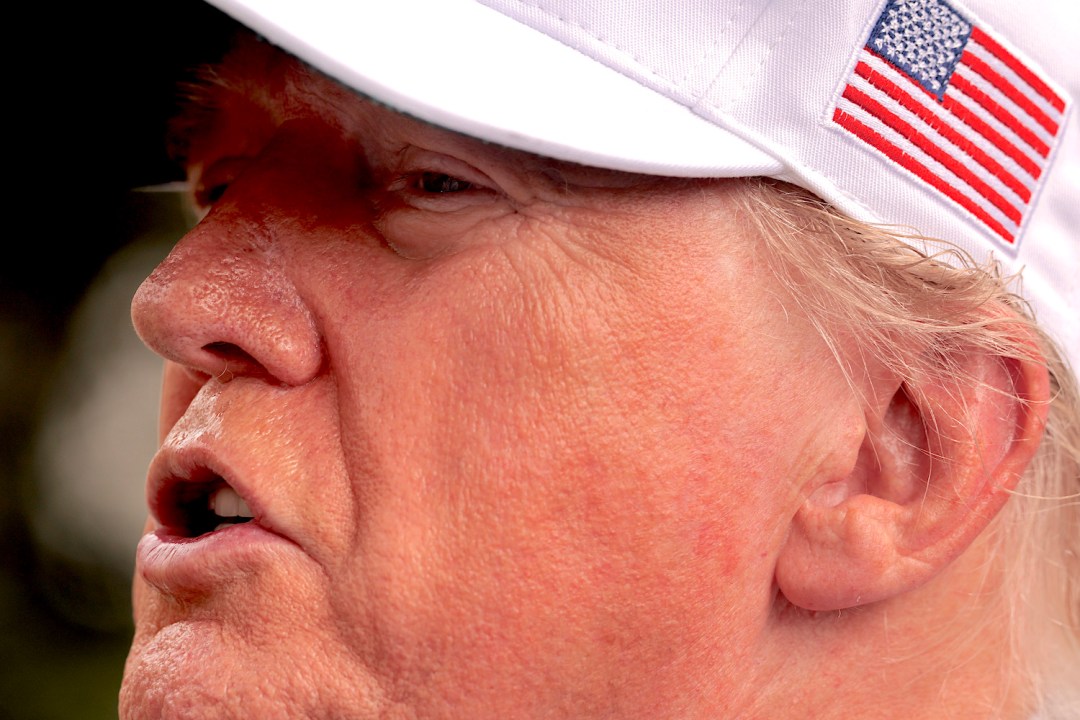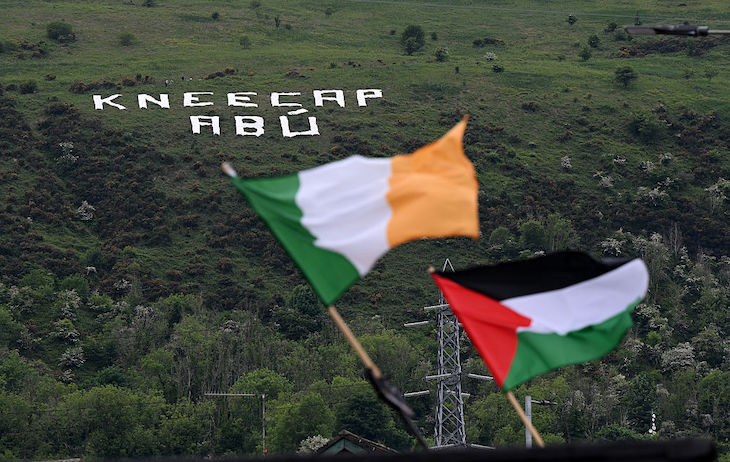The world is watching Donald Trump to see if he will give his military the green light to use one of America’s most deadly weapons, the Massive Ordnance Penetrator (Mop), to destroy Iran’s underground nuclear facilities at Fordow. As a man with a seemingly inexhaustible need for attention, this is a gratifying position for him to be in. But a potentially dangerous one for the rest of us.
‘Trump doesn’t have a taste for war,’ someone said to me recently. ‘War’s bad for business.’ This appears to be true so far; we have certainly seen Trump try his hand at peace-making in Gaza, Ukraine and Iran with consistently poor results. But history is full of examples of far more principled men than Trump acquiring a taste for war through a thirst for power and money. And we all know what Donald thinks about power and money. If this war, and America’s involvement in it, could be presented to Trump as a step towards peace and money and more power, then we should not be surprised in the slightest if he says, ‘Ok. Go ahead.’
We hear the ‘no surrender’ messages coming out of Tehran (notwithstanding rumours of Khamenei’s death overnight). It seems then a question of when not if America joins in.
But striking Fordow will not solve the problem that this war has created. Iran’s threats to withdraw from the Non-Proliferation Treaty (hidden among the news cycle) give us a glimpse of the real pariah state in Tehran that might follow; unmoored from global norms, driven by a strong sense of vengeance and injustice and still limping on somehow. And with not an IAEA weapons inspector in sight, very much like the situation we have in North Korea. A decisive defeat for the Islamic Republic is now the only option left for America and Israel, for anything less than this would almost certainly give the world yet another broken nation in a troubled region full of conflict. Does Trump’s administration possess the strategic attention span or will require to construct a strategy to rebuild what he has destroyed? Not a chance. And especially not now that the USA doesn’t have a civilian aid agency (previously USAID) through whom this essential work would be carried out. Israel has no appetite or expertise for that sort of thing, either.
This scenario is what worries the Gulf countries, of whom Saudi Arabia is the most prosperous and diplomatically powerful. Had you asked Riyadh four years ago if they’d have liked to see a non-Islamic Republic Iran, they’d have said yes. There is no love lost between Tehran and Riyadh, placing to one side the petro-dollar fuelled hiatus when the Shah was in power. But from Riyadh to Ankara, to Bahrain and beyond, the fear now is that perhaps the price to pay for removing Khamenei (decades of instability and conflict) is simply too high, no matter sectarian fault lines. And so, they are caught between desiring a swift end to the conflict and knowing that swift ends to conflicts in this region are illusory goals that belong to the fevered imagination of people like Netanyahu and Trump. And these views are distorted by the fog of war and ego respectively.








Comments